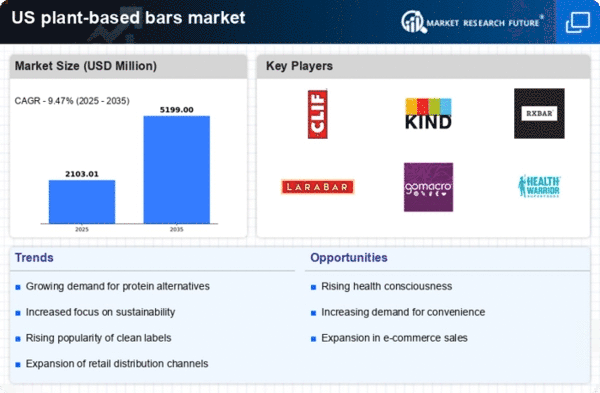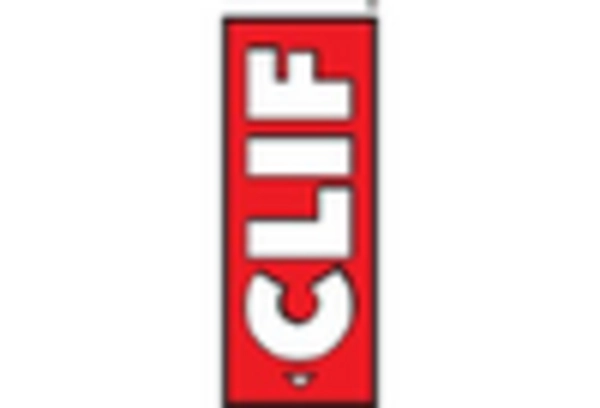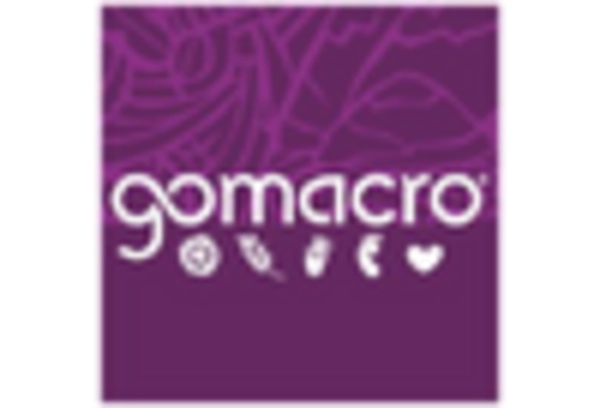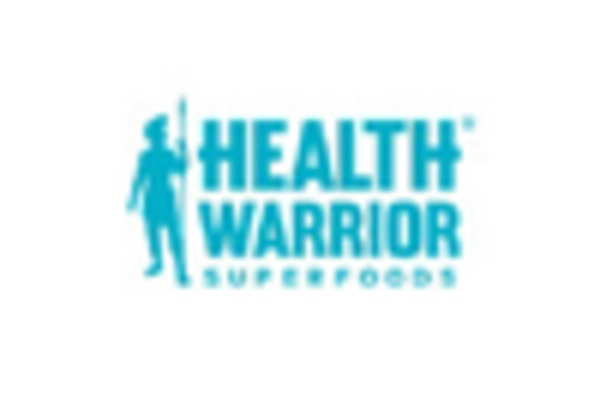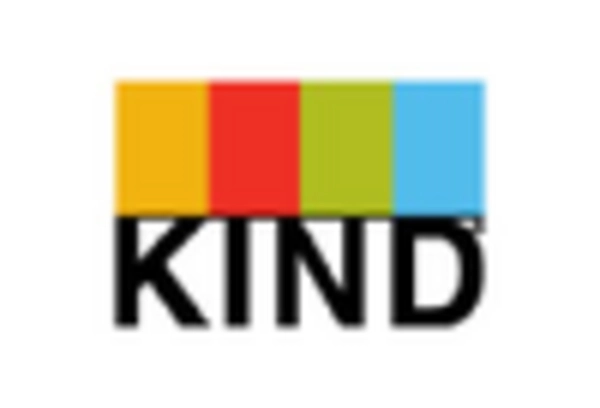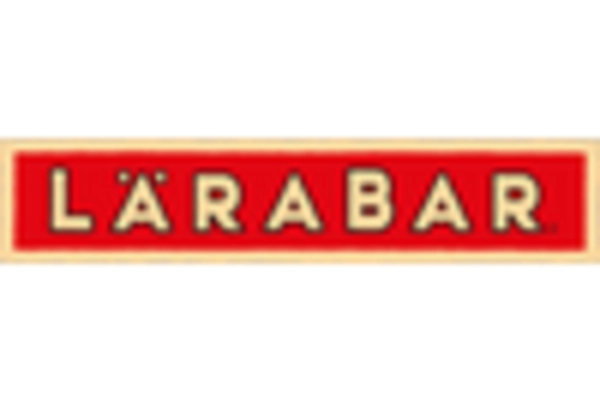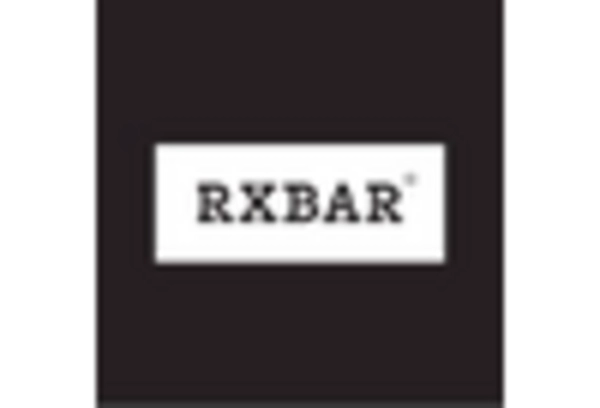Innovative Marketing Strategies
The plant based-bars market is seeing a rise in innovative marketing strategies that resonate with consumers' values and lifestyles. Brands are increasingly leveraging social media platforms and influencer partnerships to reach target audiences effectively. This approach not only enhances brand visibility but also fosters community engagement around plant based living. As a result, companies are likely to see improved customer loyalty and brand recognition. The plant based-bars market is adapting to these changes by creating campaigns that emphasize the health benefits and sustainability of their products, potentially leading to increased sales and market share in a competitive landscape.
Shift Towards On-the-Go Consumption
The plant based-bars market is witnessing a shift towards on-the-go consumption, as busy lifestyles prompt consumers to seek convenient snack options. This trend is particularly pronounced among millennials and Gen Z, who prioritize convenience without compromising on health. The market is adapting by offering single-serving packages and portable formats, making it easier for consumers to incorporate plant based bars into their daily routines. Recent studies indicate that nearly 60% of consumers prefer snacks that can be consumed quickly and easily. The plant based-bars market is thus likely to expand its reach by catering to this demand, potentially increasing sales and brand loyalty among time-strapped individuals.
Rising Demand for Nutritional Snacks
The plant based-bars market is experiencing a notable surge in demand for nutritional snacks, driven by consumers' increasing awareness of health and wellness. As individuals seek convenient yet nutritious options, the market for plant based bars is projected to grow significantly. According to recent data, the market is expected to reach approximately $1.5 billion by 2026, reflecting a compound annual growth rate (CAGR) of around 8%. This trend indicates a shift towards healthier snacking alternatives, with plant based bars being favored for their protein content and natural ingredients. The plant based-bars market is thus positioned to capitalize on this growing consumer preference, as more brands innovate to meet the nutritional needs of health-conscious individuals.
Growing Interest in Plant Based Diets
The plant based-bars market is experiencing growth due to the increasing interest in plant based diets among consumers. This shift is influenced by a variety of factors, including health benefits, environmental concerns, and ethical considerations. As more individuals adopt vegetarian or vegan lifestyles, the demand for plant based snacks, including bars, is expected to rise. Data suggests that approximately 30% of Americans are actively trying to incorporate more plant based foods into their diets. The plant based-bars market is thus well-positioned to benefit from this trend, as brands develop products that align with the dietary preferences of a growing segment of the population.
Increased Availability of Plant Based Ingredients
The plant based-bars market is benefiting from the increased availability of plant based ingredients, which has expanded the options for manufacturers. As more suppliers enter the market, the cost of sourcing high-quality plant based ingredients has decreased, allowing brands to create diverse product offerings. This trend is particularly relevant as consumers are increasingly seeking transparency in ingredient sourcing. The plant based-bars market is likely to see a rise in products that highlight clean labels and natural components, appealing to a broader audience. Furthermore, the growing interest in plant based diets has prompted innovation in ingredient combinations, enhancing flavor profiles and nutritional value, which could further drive market growth.


